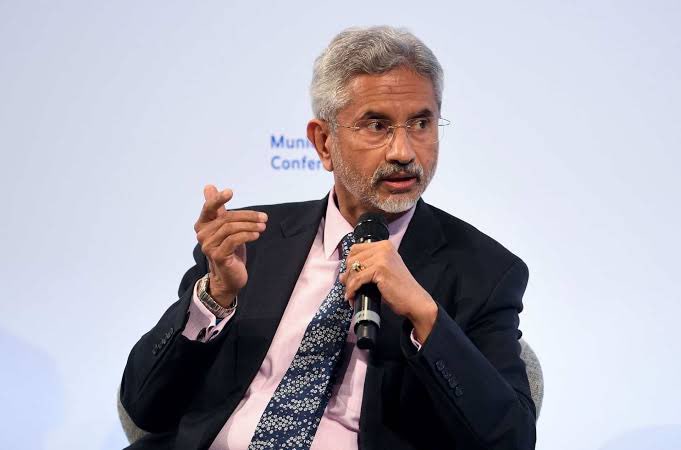India Holds Firm on Diplomatic Autonomy Amid Global Pressures on Oil, Borders, and Alliances
India stated its independent foreign policy and strategic autonomy once again in a wide-ranging media briefing on Friday, tackling pointed questions about its energy ties with Russia, US-China rivalry, border disputes, multilateral roles, and diaspora concerns.
 |
| Image Source: Shubhangi Sharma |
The government made clear that India’s decisions--especially regarding Russian oil--will remain guided by national interests, costs, and logistics.
“We reject these comments. India-US ties are anchored in shared democratic values and mutual respect,” the spokesperson said, brushing aside President Donald Trump’s claim that the US had “lost” India to “deepest, darkest China.”
On the Indo-Nepal border issue, Delhi stood by its previously stated position after Nepal objected to Indian trade through the Lipulekh pass, stating that its actions are consistent with long-held national policy.
Amid reports of anti-immigration protests targeting Indians in Australia, the ministry confirmed that its missions had conveyed concerns to the Australian government ahead of the events.
In return, Canberra acknowledged the protests' impact on its diverse communities and reaffirmed its appreciation for Indian-Australians’ contributions.
Asked about China’s proposed SCO Development Bank and reported objections to Baku's membership, India clarified that it is still reviewing the proposal and that no final decision had been made on new member applications from Armenia or Azerbaijan.
The ministry also addressed growing interest in India’s position on Afghanistan, amid speculation over possible engagement with the Taliban.
While confirming continued support for Afghan development and people-to-people ties, it did not comment on whether visa waivers had been sought for any Taliban representatives.
India confirmed its participation in the virtual BRICS summit on September 8, with External Affairs Minister S. Jaishankar set to represent the country.
The government dismissed a Bloomberg report claiming China had sent a secret warning letter to India over its trade alignment with the US, calling the story “incorrect.”
On bilateral trade with Washington, the ministry maintained that dialogue continues on all matters including mobility and visa frameworks, amid political commentary in the US that has questioned Indian access to H-1B programs.
The ministry also addressed coordination with Pakistan over flood data sharing through diplomatic channels, and stated that regular updates have been provided on humanitarian grounds.
India’s measured but firm responses across the board pointed out its intent to chart an independent path on the global stage by resisting both Western and regional pressures, while anchoring its diplomacy in pragmatism, multipolarity, and long-term strategic interests.
